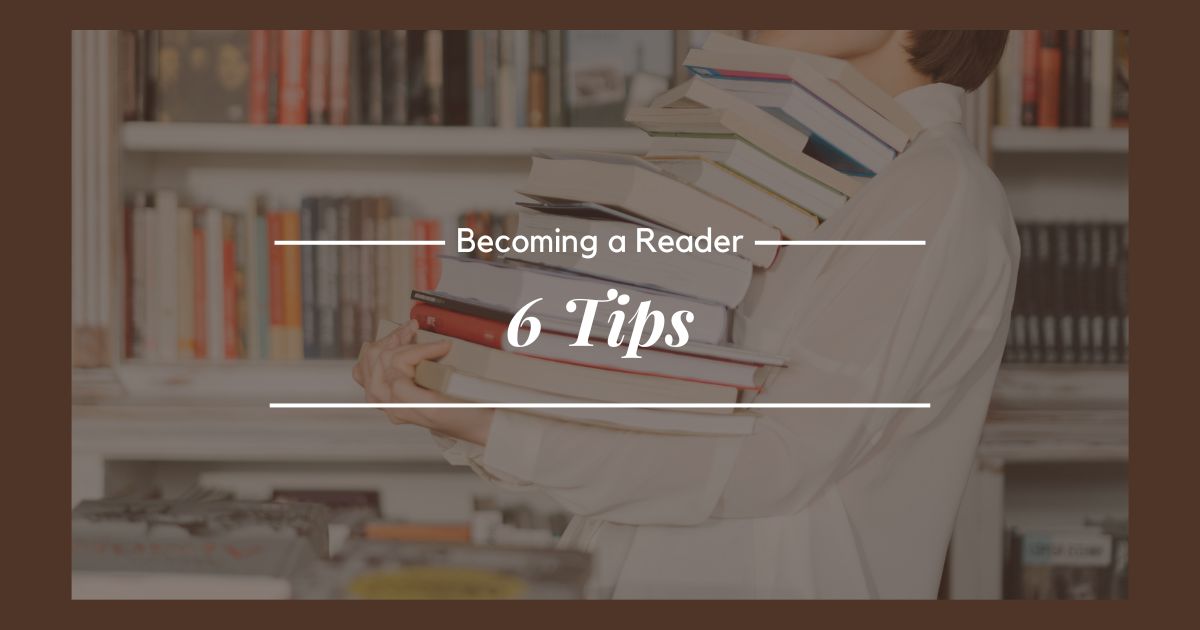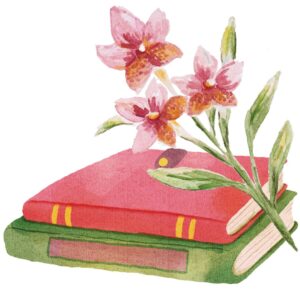Everyone knows the pandemic shook up our lives and routines – notably in the area of hobbies and work-life balance. It forced many of us to take a critical look at the way we spend our time, and ask ourselves whether we were fulfilled. A lot of bread baking took place.
I know I can’t be the only one who is still grappling with the question of, “Is my free time really fulfilling me?” The pandemic is behind us, and yet we can’t close this Pandora’s box. People are leaving in-person jobs in droves for the preferred hybrid and remote options to have personal time back. More and more people are gardening, baking, and pursuing creative endeavors or learning new things.
Perhaps you’re asking yourself if you could, or should, get into reading. Or – if you’re an active reader currently – you may have friends or family members who are picking up this hobby for the first time since they were in school.
As a reader, I’m biased. Of course I’m going to say, “Yes! It’s absolutely worth it!” But it’s true that you may have to try a few before you land on something you like, something that sucks you in. It’s sort of like shopping for clothes – you’ll have to try a few on, decide whether it suits you, and choose accordingly. Some people, like me, enjoy books from a wide range of genres. But others are mostly into one genre or another, and that’s cool, too. So you may have to try a few to find your niche.
Here are my tips for becoming a reader – pick and choose as you see fit, and share with those who may benefit as well.
1. Suffer no bad vibes.
I have a whole blog on the value of the DNF – the “did not finish” label many readers ascribe to the books they gave up on. The long and short of it is: if you’re not enjoying yourself, don’t make yourself finish it.
A good way to tell whether you should DNF a book is when you stop wanting to pick it up every time you sit down to read. I have a few type-A friends who resist this idea on the grounds of “not quitting,” but I think that stems from our educational culture where finishing a book was required to get a good grade. Reading should be fun, not a chore or obligation. Like watching a TV show – I will drop those (intentionally or unintentionally) when my interest wanes.
Here’s why: If you make yourself finish a book you’re not enjoying while you’re still trying to get into the hobby, you may just turn yourself off of reading altogether. When in reality, it was just that book.
2. Check your eyesight.
I’m not kidding.
One of my younger family members who never read a book for fun always said she would get a headache when she tried to read, but she said it jokingly, as if to say, “Reading is so hard or so boring, that I literally get a headache.” I told her she needed to visit an optometrist. And guess what? She really did need glasses. She had no idea. Now she reads regularly.
Sometimes, it’s really a tooling issue. Not a you issue. On that same note, check in on your environment. Do you need more silence, privacy, or maybe some lofi music? It can make a big difference.
3. Don’t spend your money if you don’t have to.
Whether you go to the library in-person for physical books or use an app through your library to digitally check out eBooks or audiobooks, this is a great place to start. It’s free. Don’t spend money on books you’re not sure you’ll like. There’s no faster way to turn yourself off of a new hobby you’re on the fence about than to sink money into it with no payoff.
That’s actually one of the main benefits. While many hobbies require some cash, you don’t have to have a lot of spending power to be a reader.
4. Read as many first chapters as you can.
Go to the library or bookstore, pick up books with interesting covers, read the description, and if you feel compelled, read the first chapter. Many book retailers will let you “peak inside” online, too. If you finish the chapter and want to keep reading, you have a winner. If you don’t want to keep reading, put it back and try a different one.
This is sort of like speed-dating books. It’s a great way to try a variety of writing styles and genres to see what catches your attention.
5. Read for yourself, not for appearances.
Don’t pick books you think you should be into. And especially don’t pick out certain books because you think onlookers will be dazzled by your intellect. A leather-bound tome with Sartre’s name printed on it might look good on the shelf, but if you don’t actually like or get anything from reading it, then what’s the point?
Don’t get me wrong. If you’re into heavy philosophical literature – be my guest. I think that’s great. But those books aren’t part of the current zeitgeist for a reason.
You should pick books that sound genuinely fun to read. At least at first. If over time you feel you have flexed your reading muscles enough for a harder or drier read, that’s excellent. That’s not most casual readers, though, so don’t force yourself to start there – I wouldn’t even make it a goal.
My advice for a general audience is to not shun any one genre or niche based on first impressions. Genre fiction like fantasy, sci-fi, and romance are often judged by outsiders, but they are the most beloved (and the most profitable for writers and publishers). Also peruse best-seller lists. Not every bestseller will be for you, but they are best-selling for a reason. It could be a good place to start.
6. Read the reviews after you finish a book.
Before I became a book reviewer, I often struggled to put words to the feelings I had toward a book. If I liked it, I liked it. I didn’t know why, really. I could say off-hand that I liked the plot or the writing, but what about those things did I like? Beats me, man, I’m just here for a good time.
But understanding your preferences helps you find more reads you’ll enjoy, and waste less time on books you won’t enjoy.
If you liked a book, read some of the higher-rated reviews to help you put your feelings to words. This exercise can help you pinpoint what exactly it was you enjoyed, and can help you look for that in your next read. If you didn’t like a book, read its lower-rated reviews. Same idea. This can help you understand your preferences better so you know what to avoid. The go-to websites for reviews are Goodreads and Storygraph.
Please note that bad reviews for books are a good thing – more on that here. If you enjoy a book and see that someone else left a scathing review, just move on with your day. It happens.
Basically, just have fun.
All this to say – reading is a hobby. You should only engage with it as much as it’s fun. If it stops being fun, don’t force it. Switch to other books or genres. And be patient with yourself. There are so many books, genres, formats, tropes, and plot devices to explore that it could take a few tries to land on the right thing for you.
If you enjoy movies and TV shows, then you enjoy storytelling. So it’s likely that the right book is somewhere out there, just waiting for you to find it. Best of luck.
If you liked this blog, please consider subscribing! I don’t yet have a newsletter or anything fancy (I’m a one-woman show and I do this for fun), but if you subscribe you’ll get an automated email notification like this on Tuesdays and Thursdays at 11:30am Central time when I post a new blog:

I would love to have you around! Subscribe below.
Check out some of my other recent blogs:








